
First, make a yearly appointment
About 8,000 Canadians will be diagnosed with skin cancer in 2020, according to the Canadian Cancer Society. Considering that startling fact, penciling in an annual visit to your dermatologist’s office should be a must. During those appointments, your doctor will conduct a full skin exam and check for anything that looks unusual or abnormal. It’s also a great time to address any skin concerns you may have, including everything from breakouts and blemishes to psoriasis and rosacea.
Experts also recommend conducting your own skin checks at home so you can stay on top of any changes and report back to your dermatologist if you see anything suspicious. To help you make the most of your next visit to see your dermatologist, we talked to the experts to find out the important questions you should be asking.
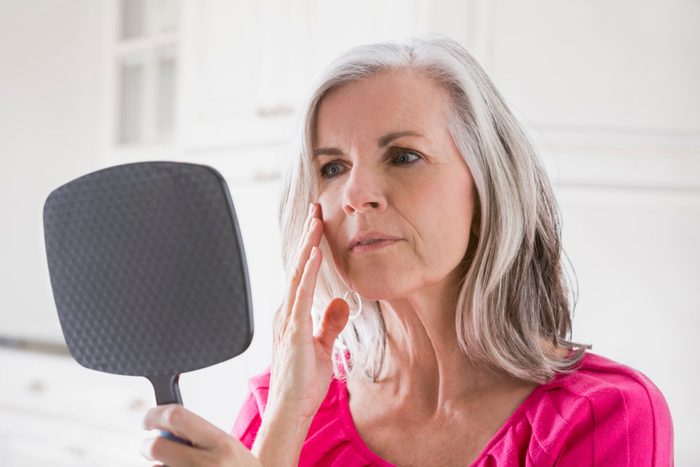
How can I slow down signs of aging?
While we’re all looking for the fountain of youth, there are many things that can impact aging. That’s why it’s important to talk to your dermatologist about your skin care routine and the lifestyle habits that may be harming your skin. “Your dermatologist can discuss factors that both positively and negatively impact skin aging, suggest lifestyle changes, and make skin care and treatment recommendations,” explains Sejal Shah, MD, board-certified dermatologist. “This allows patients to optimize their anti-aging routine and helps patients more effectively slow down the aging process.”

Could my diet be affecting my skin?
“This is a good question because a lot of times we talk about topical treatments, when inflammation or breakouts could arise from what we are putting in our bodies,” says Dendy Engelman, MD, of Manhattan Dermatology and Cosmetic Surgery. She explains that processed or artificial sugars, which are in many of the foods we eat, as well as dehydration and nutrient deficiencies, can play a major role in skin health. “The body needs the proper vitamins and minerals to rid the skin of inflammation and waste,” she adds. “Without them, oil glands can go into overdrive, skin can be dry and flaky and discoloration can appear.” This question could answer many issues a patient may have where topical treatments are failing. All in all, a healthy body should lead to healthier skin.
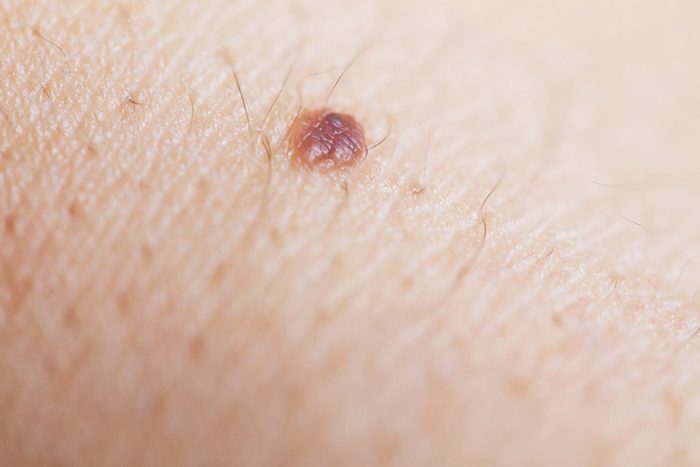
How can I monitor moles or other markings at home?
The reality is that no matter how well and often you apply SPF, no one is immune to skin cancer. For this reason, it’s vital that you do regular skin checks to monitor moles, birthmarks, and other skin spots for any changes. Dr. Engelman recommends checking your skin monthly at minimum to make sure you’re staying alert to changes in the number, size, shape, or color of spots on your skin or sores that do not heal. Pay special attention to moles—especially ones that have recently changed, bleed, or itch. “Spotting a worrisome mole early on can be truly life-changing and could mean the difference in how invasive removal and treatment will be,” she adds.

What products or ingredients should I be using for my skin type?
Joshua Zeichner, MD, director of cosmetic and clinical research in dermatology at Mount Sinai Hospital in New York City, recommends identifying your main skin issue and looking for products that are appropriate for treating it. For example, if you have dry or sensitive skin, look for fragrance-free, hydrating ingredients. If you have oily skin or acne, look for ingredients like salicylic acid, which helps exfoliate dead cells and removes excess oil from the skin. If you have mature or wrinkling skin, look for ingredients like retinol, growth factors, or peptides which promote healthy collagen production. For individuals with excess pigmentation or dark spots, he suggests looking for skin-brightening botanicals or antioxidants like vitamin C and vitamin E. Don’t hesitate to ask your dermatologist which skin type you have.

How often should I exfoliate?
The answer to this question will vary based upon a person’s individual skin type. “Some people can only handle exfoliating once a week while others need to every day,” explains Dr. Engelman. “I would suggest to start with once or twice a week and increase in frequency.” Based on your skin type, a dermatologist will recommend a physical or chemical exfoliant or a mixture of both. For example, with oily skin, you’ll want to be careful not to strip the skin of natural oils and cause overproduction, yet work to wash away sebum build up. According to Dr. Engelman, chemical exfoliants are the best option for ridding the skin of dirt and grime while not causing irritation. She also recommends looking for cleansers with alpha hydroxy acids (AHAs), such as glycolic, salicylic and lactic acids. “These work to improve the skin tone and texture by weakening the lipids that bond the top layer together and revealing the healthy cells underneath,” she says. “They penetrate deep into the skin, unclog pores and prevent buildup that can lead to acne and inflammation.”
For those with sensitive skin, she recommends using a brush or washcloth with your normal cleanser. “This makes it easy to control the abrasiveness based on the pressure you use, and you won’t have to worry about any ingredients you might be allergic to.” Be wary of excessive exfoliation, however, which can break down the skin barrier that protects against harmful bacteria.

What level SPF should I wear?
Health Canada recommends using a sunscreen with at least SPF 30, but most dermatologists recommend even higher. “When it comes to application, most people don’t apply as much sunscreen as they think they’re applying—and certainly don’t reapply as often as they should,” says Dr. Zeichner. “Starting with a higher SPF level to begin with is like an insurance policy to give us the best quality of protection for the longest period of time.”

What do I do about skin discolouration?
There are several possible reasons why your skin may be spotty or a different shade than you’re used to. While it’s usually not a cause for concern, Dr. Engelman points out that is could be a sign that you’re spending too much time in the sun. Another possibility is that you’re dealing with a hormonal imbalance. For example, chloasma (known as the “mask of pregnancy”) commonly crops up in dark, blotchy patches on expecting women as the result of raging hormones.
Your first mode of defense should be to wear sunscreen every day. “Even small amounts of UV light exposure can stimulate pigment production,” says Dr. Zeichner. “There are a variety of skin-lightening creams available that contain ingredients such as hydroquinone, kojic acid or other botanical skin brightening ingredients.” Your dermatologist may also suggest chemical peels or laser treatments, which they’ll do in the office. (Also, here’s how to reduce the appearance of sunspots.)
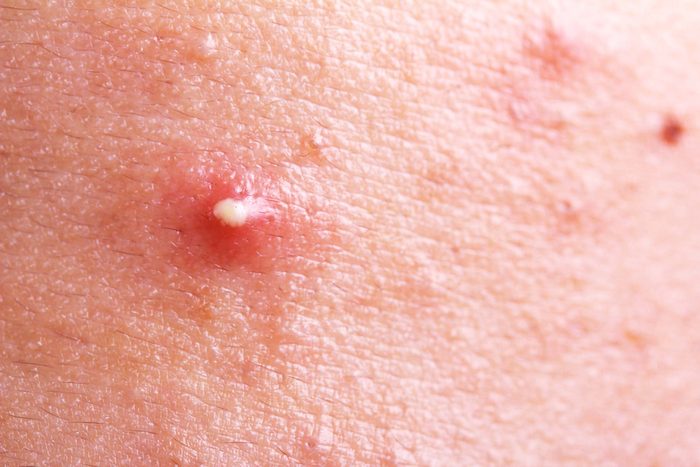
Why am I suddenly breaking out like crazy?
There are a number of other factors that can cause acne, from diet to hormone imbalances. “A dermatologist can help clarify the potential causes and make appropriate treatment recommendations to get the patient on the right track to clear skin,” says Dr. Shah. Sometimes it might be an easy fix, like eliminating dairy from your diet, or switching up the skin care products that you’re using, but other times medical intervention is necessary. Your dermatologist may recommend prescription treatments, such as Accutane or Spironolactone, to optimize your response to treatment and improve your chances of clear skin. (Also, here are skin conditions that look like acne but aren’t.)
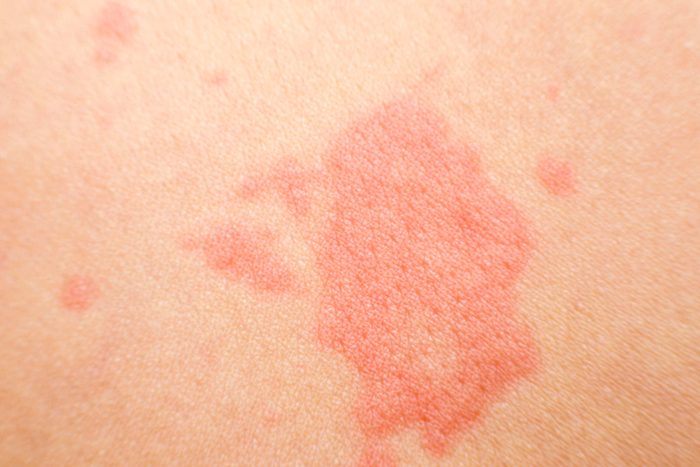
What is this rash and why won’t it go away?
Rashes sound harmless—and sometimes they are—but if you’re dealing with red, bumpy patches of skin that don’t disappear on their own, be sure to discuss them with your dermatologist. “Skin rashes can be caused by genetics, like eczema, environmental factors, like poison oak or poison ivy, or even the result of an infection, like a sandpaper rash from strep,” explains Dr. Engelman. The root cause will influence the treatment plan your dermatologist prescribes, whether it is as simple as calamine lotion or an antibiotic. It’s important to note that rashes can be a sign of a bigger issue such as fungal infections or immune deficiencies. For this reason, and to find a treatment that actually works, it’s best to see your dermatologist. In the meantime, try your best not to scratch!
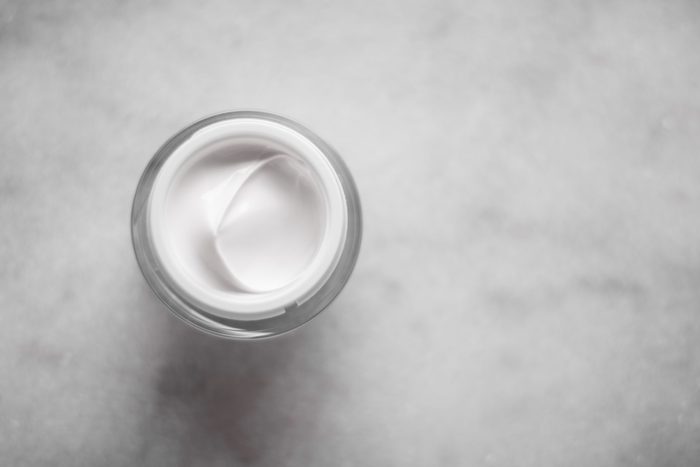
How do I determine if a skin care product is worth my money?
It’s tempting to dole out serious dough for products promising to fade dark circles in days or smooth wrinkles in weeks. But, do they really work? Does their heftier price tag really make them more effective than cheaper products you can buy at the drugstore? Dr. Zeichner says he believes that the cost of a product does not necessarily determine its level of effectiveness. Instead of letting the price tag sway you, he recommends choosing skin care products that have invested in studies to show that they yield the desired results.
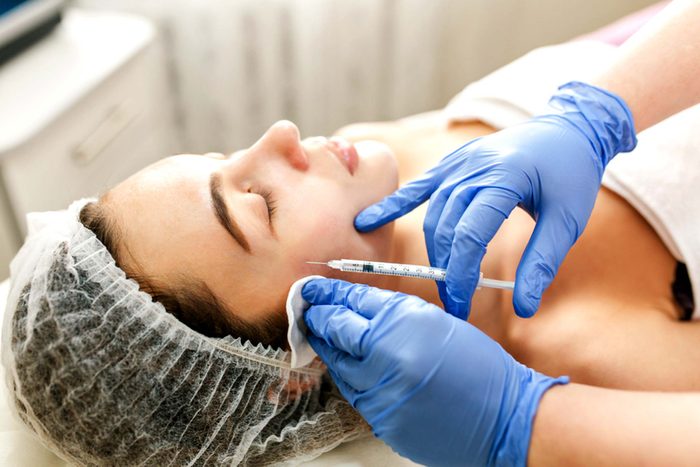
How do I know if I should get Botox or fillers?
Whether or not to go under the needle is an entirely personal question, but if you’re curious about any procedures, don’t hesitate to ask your dermatologist. “Fillers and Botox are not for everyone and not everyone needs them at the same time,” says Dr. Engelman. She suggests discussing your concerns with your doctor and your reasons for wanting to get work done. “Small injections earlier on can shave off years later on and save a person from needing more invasive work done,” she adds. “But only see a doctor you trust and one who is focused on safely achieving the desired results.”
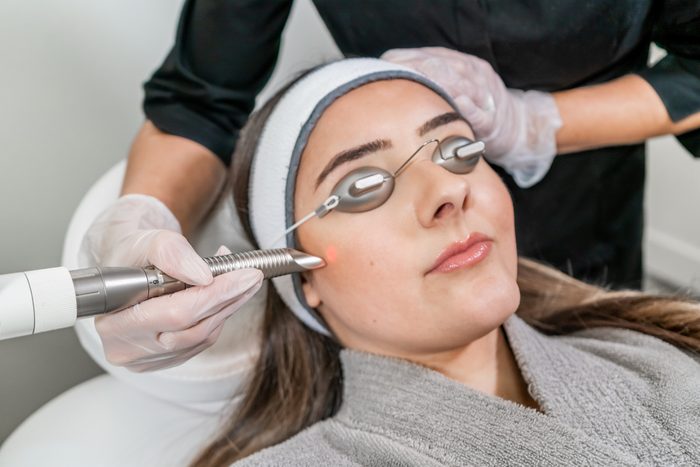
Are laser treatments safe for my skin type?
As Dr. Shah points out, there are several different laser treatments that address different issues. Your best bet is to skip the small beauty salon and visit a board-certified dermatologist for this kind of procedure. A certified professional can discuss the different options based on your skin concerns and offer solutions that are safe for our skin type. “This is helpful so the patient receives treatments that, not only address his or her concerns, but are safe for his or her skin to minimize the risk of adverse effects,” adds Dr. Shah.
Next, learn how dermatologists change up their skin-care routine in the summer.
